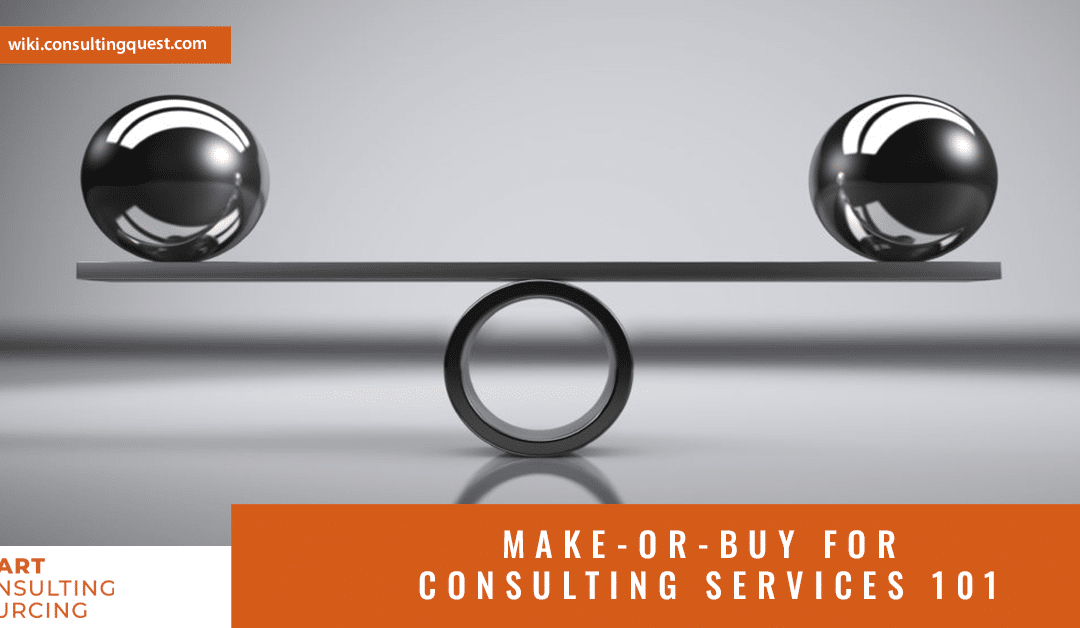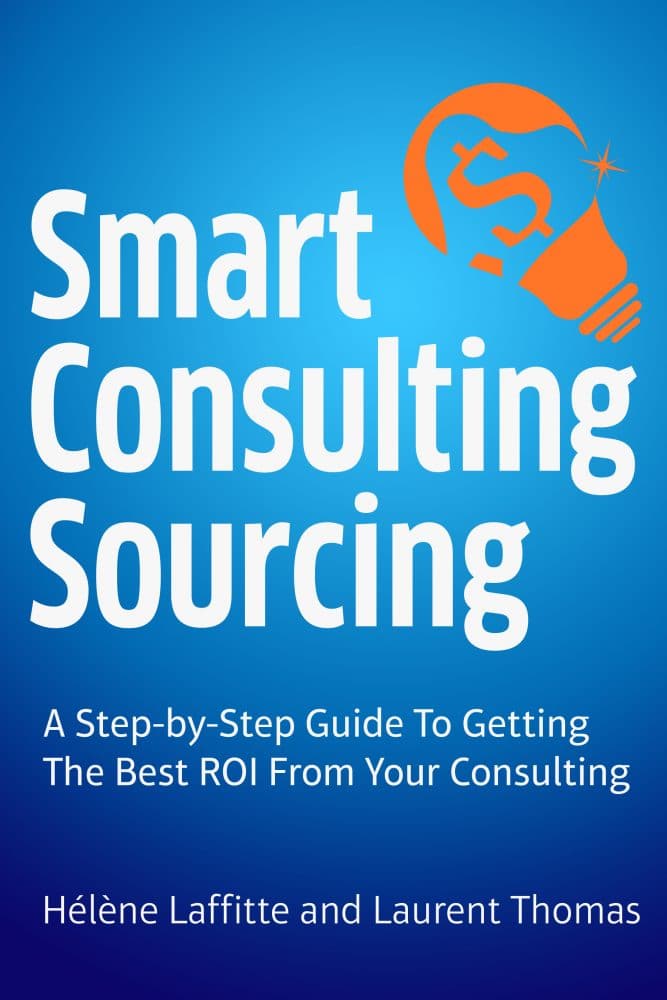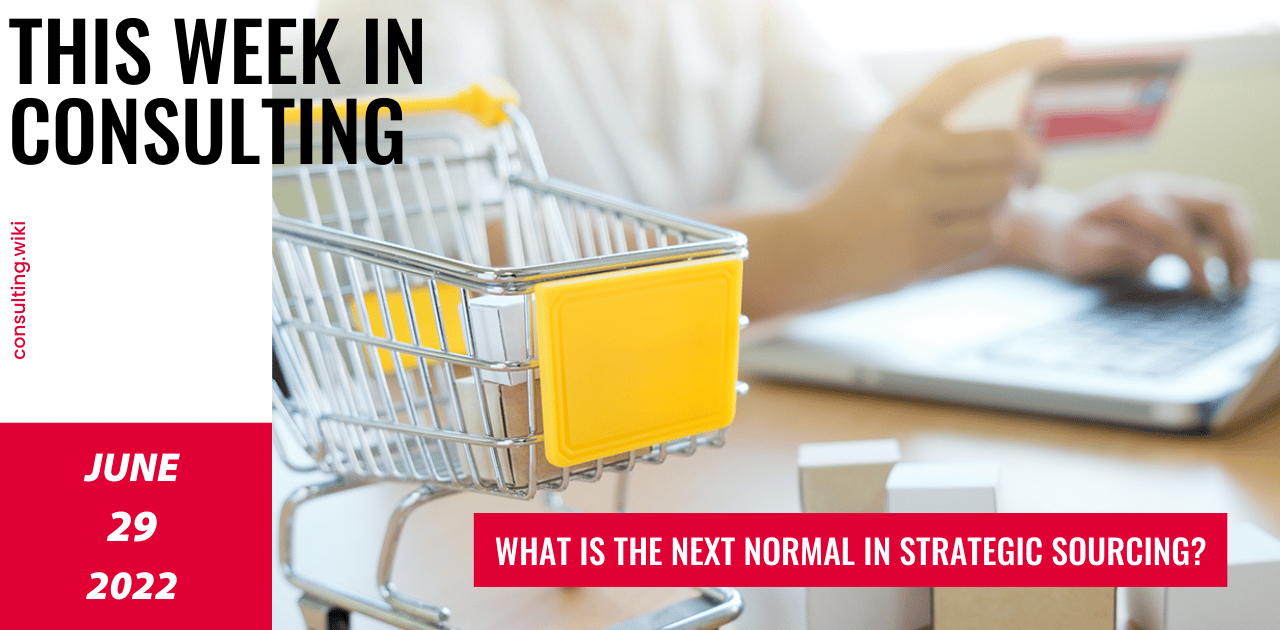
How Vital to Your Projects is The Relationship With Consultants?
Successful management of your relationship with Consultants has a tremendous effect on each of your projects. In this article, we would like to outline a few progressive approaches to assure you to get the results you aim for.
Like for any other category, Supplier Relationship Management (SRM) is a Huge Topic for Consulting Services. The way Procurement manages Consulting Providers should fit in the overall SRM practices for the company.
How Vital to Your Projects is The Relationship With Consultants?
1. Correctly identify your Strategic Suppliers
The principles for segmenting the entire supply base for Consulting Services should be the same for other categories as well. Often companies will choose the largest Consulting Firms as strategic suppliers because they capture most of their spend. But the spend should not be the only or the most important criterion.
The criteria a strategic supplier should meet:
- Having a unique strategic skill
- Working on strategic projects
- Working on projects with a significant impact on the company.
2. Always qualify your Suppliers
Suppliers, even for Consulting Services, need to be qualified. The requirements for these suppliers are mainly based on former clients’ testimonies, case studies, and relevant thought leadership.
Three points to consider here:
- The references must be relevant to the scope of your qualification. For instance, if you want to qualify John Doe Consulting for Innovation Management projects, they need to give you references for the Innovation Management capability, or at least the Innovation capability.
- Don’t forget that Consulting has a very high human component. The partners or project managers have a significant impact on a project, but that impact, mostly intrapersonal skills and expertise, are not transferable. Very often, the partner who is initiating the relationship will be the owner of the account and will be in charge of most projects. Ask for references of projects s/he led personally.
- When you are inviting a Consulting Firm on a new capability, don’t hesitate to ask for further relevant references. If references are with your competitors, do not hesitate to ask a third party to help you with the process
READ ALSO
“Compensation models vary, and using the right one can benefit both parties, Clients, and Consultants, also ensure everyone is happy and gives their best to the project. “
3. Regularly measure your suppliers’ performance
Very few Companies measure the Performance of their Consulting Suppliers. Mainly because Consulting is an intangible service, and they are not comfortable evaluating the content of a project.
We will get back to how to implement a Performance Measurement System in detail, but here is a sneak peek.
The system should be based on what makes a Consulting Project successful. Top of the mind, you will find the quality of delivery with the time/quality/cost aspects. The impact of the Consulting Team on the business, even though not measurable in numbers, can always be estimated with the satisfaction of the sponsor and the project leader on the results.
Other elements contributing to the success of the project are the talent and expertise of the team and the soft aspects (ability to build trust or transfer knowledge, for instance).
For a long-term project, you should consider measuring performance at a mid-project checkpoint. It will help you make sure the project is progressing according to plan and implement necessary corrective actions and changes.
4. Effectively manage the relationship
The familiarity between a Consulting Firm and its clients can facilitate and accelerate projects. When you regularly work with a Consultant, s/he is “plug-and-play”: s/he knows your business and your industry.
Consider and implement regular meetings with your Suppliers to keep them in the loop and communicate the results of their Performance Assessments.
Implementing Category Management for the Consulting Category can drive significant savings and increase the return of investment of your Consulting projects. For all categories, it implies a close cross-functional collaboration, which can be challenging in a large organization.
The nature of Consulting Services demands an even more collaborative and flexible approach to category management, since the decision-making and the knowledge are in the hands of the sponsor and the project leader only.
5. Learn to leverage Consultants’ insights
After spending a long time working on your projects, consulting firms start to acquire a good degree of familiarity with your business. Obviously, they would love nothing more than having another project with you (unless you have been a painful client, but that is another story).
Ask your consultants for feedback about your company and what they would do if they were in your shoes. You will be surprised by the power of this simple question. In doing so, you will usually get honest feedback about your operations compared to the state of the industry or the latest thought leadership. It’s a valuable insight you can apply as you best see fit.
Consulting sourcing tips

How to negotiate framework agreements for consulting to your advantage?
How to negotiate framework agreements for consulting to your advantage?

Make-or-buy for consulting services 101
Make-or-buy for consulting services 101

Does Category Management apply to consulting?
According to the CIPS, Category Management enables procurement professionals to focus their time and conduct market analysis to leverage their negotiations fully and correctly manage their suppliers in alignment with the corporate objectives.
Previous Weeks’ issues

Burnout at Work: A Crisis We Can’t Ignore | This Week in Consulting
In this edition of This Week in Consulting, we offer insights into the latest challenges, innovations, and strategies driving growth and resilience in the restaurant industry.

Navigating Change Management: Principles, Challenges, and Expert Insights | This Week in Consulting
In this edition of This Week in Consulting, we offer insights into the latest challenges, innovations, and strategies driving growth and resilience in the restaurant industry.

How Restaurants Are Cooking Up Success in a Changing World | This Week in Consulting
In this edition of This Week in Consulting, we offer insights into the latest challenges, innovations, and strategies driving growth and resilience in the restaurant industry.
Choose the best next step for you
Buy the Book
Talk to us
Hélène Laffitte is the CEO of Consulting Quest, a Global Performance-Driven Consulting Platform and author of “Smart Consulting Sourcing”, a step by step guide to getting the best ROI from your consulting. With a blend of experience in Procurement and Consulting, Hélène is passionate about helping Companies create more value through Consulting.







